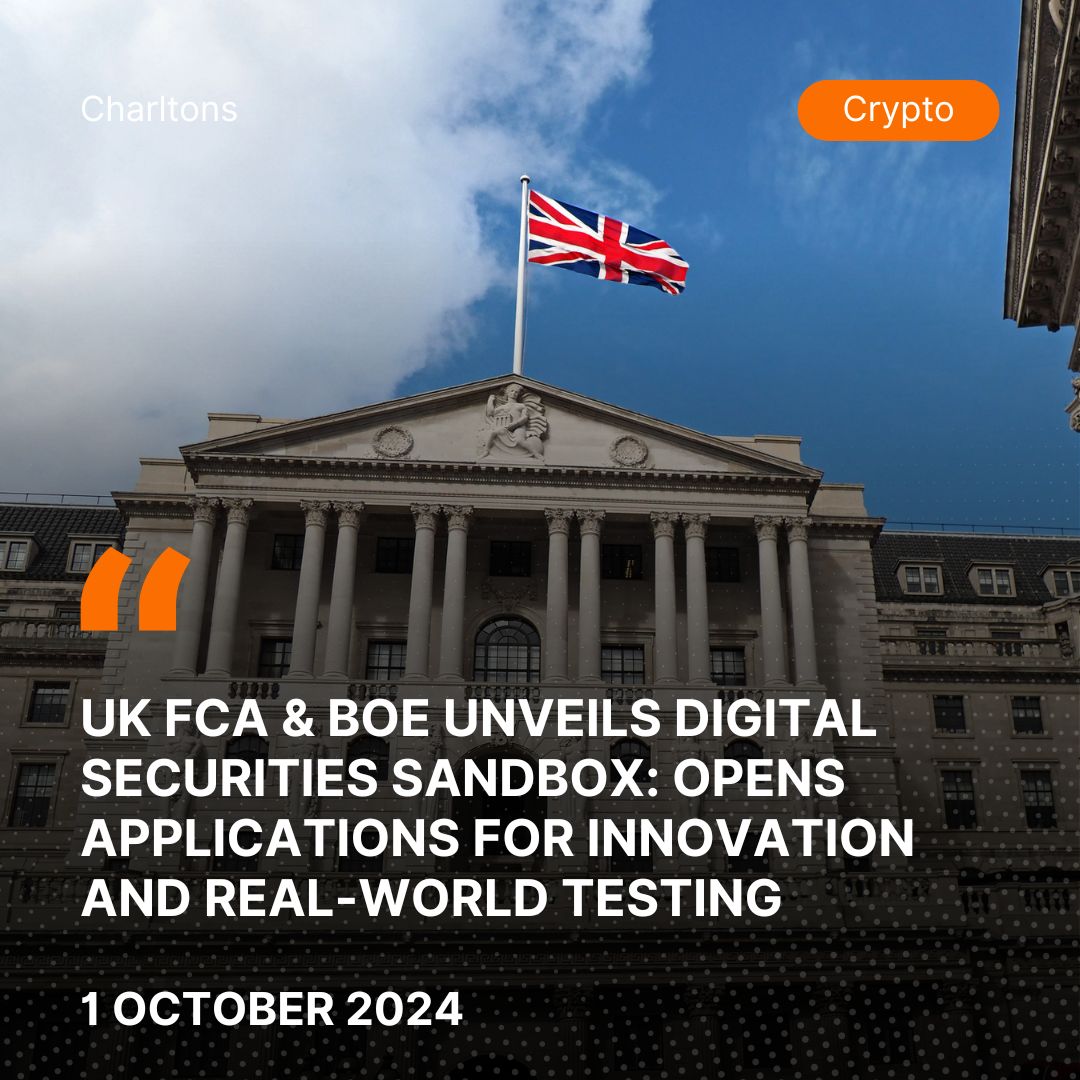
On 30 September 2024, the Bank of England and the UK Financial Conduct Authority (UK FCA) launched the Digital Securities Sandbox (DSS) and published the policy statement and guidance note on Digital Securities Sandbox operation under the UK Financial Services and Markets Act 2023 (FSMA). This initiative allows firms to test new financial market technologies, such as distributed ledger technology (DLT), in a real-world environment. The DSS provides a modified regulatory framework that supports innovation while maintaining financial stability and market integrity.
The DSS operates through a phased structure, guiding firms through four stages known as gates. Firms begin by applying for sandbox entry at Gate 1, where they start testing under regulatory supervision. In Gate 2, firms can conduct live business under set limits, such as £600 million for gilts and £900 million for corporate bonds. Gate 3 allows firms to scale their activities, increasing their limits as they meet higher regulatory standards. Finally, Gate 4 offers firms full authorization to operate outside the DSS under a new permanent regime, possibly as a Central Securities Depository (CSD) or other FMI.
One important point for applicants is that standalone trading venues may not qualify for sandbox entry, as the framework for these operations remains unchanged. Firms aiming to participate must demonstrate their ability to meet progressively stringent regulatory standards at each stage. Detailed guidance and application forms are available to assist firms through this process. The Digital securities sandbox ensures flexibility, with firm-specific limits and fees tailored to each stage.
The DSS provides a opportunity for firms to explore new business models and technologies while operating within a safe and controlled environment. It is expected to run until December 2028, with applications open until March 2027.
The DSS consists of four stages, each requiring firms to meet progressively higher regulatory standards before moving to the next phase. Firms entering the DSS will pass through four gates:
- Gate 1: Application to become a sandbox entrant and begin testing – Firms apply to join the DSS, ensuring their activities and assets align with the sandbox’s scope. At this stage, firms will engage with regulators but will not yet be carrying out live business activities. Testing is done under regulatory supervision.
- Gate 2: Approval to begin live activities – Firms that pass through Gate 2 can start live business under certain limits. The Bank of England will assess whether firms meet the necessary rules for DSDs, and firms operating trading venues must comply with FCA authorization requirements. For example, the issuance limits include £600 million for gilts and £900 million for corporate bonds. Firms must pay a £40,000 fee at this stage, and annual fees are applied on a cost-recovery basis.
- Gate 3: Scaling the business – As firms scale up, they can request to increase their operational limits, provided they meet higher regulatory standards. Specific limits will vary by firm but must stay within overall DSS limits.
- Gate 4: Full authorization for operation outside the DSS – In this final stage, firms that successfully meet all requirements may gain full authorization to operate outside the DSS under a new permanent regime, potentially becoming a Central Securities Depository (CSD) or another form of FMI.
Firms may also operate as hybrid entities, combining the roles of a DSD and a trading venue. To do so, they must complete both the Bank of England’s and the UK FCA’s regulatory processes.
In response to feedback from 33 industry participants, the DSS has made several key adjustments, including expanding the scope to include non-GBP assets and offering greater flexibility in firm-specific limits. The capital requirement for DSDs has been reduced, and rules concerning bank guarantees and letters of credit have been simplified. The regulators have also deferred the publication of the Gate 4 rules to allow for further learning and adaptation within the sandbox.
The DSS underscores the importance of transparency and flexibility, allowing firms to innovate within a regulated environment. The initiative provides a collaborative space where firms can test new models while ensuring compliance with evolving standards, ultimately contributing to the long-term growth and success of the UK’s financial markets.
(Source: https://www.fca.org.uk/news/news-stories/digital-securities-sandbox-opens-applications, https://www.fca.org.uk/firms/innovation/digital-securities-sandbox)





